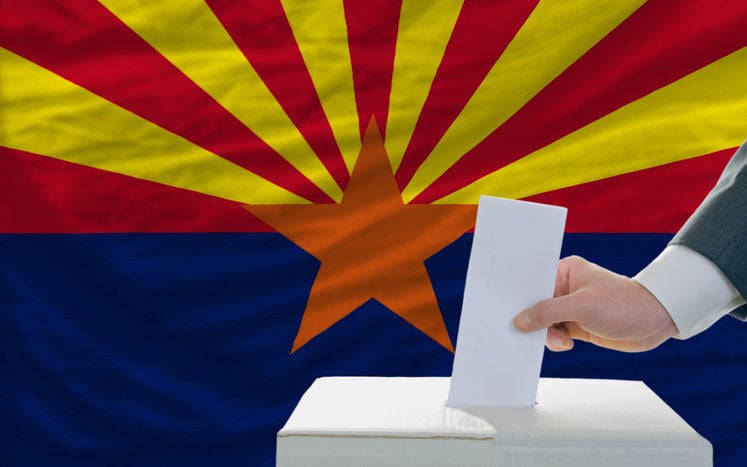PHOENIX — A coalition of community groups is asking Arizona voters to overturn restrictions on registration and voting already enacted and those being contemplated this year by the Republican-controlled Legislature.
Arizonans for Free and Fair Elections has taken the first steps to put a measure on the November ballot that would restore the “permanent early voting list” that lawmakers eliminated in 2021.
It also would ensure that people can continue to cast their ballots in person over the weekend right before Election Day and would repeal laws that limit who can take an early ballot to the polls for another person.
The measure would also void some of the hurdles lawmakers have put in the paths of citizens who want to propose laws and constitutional amendments.
A larger goal is to cut off measures now being debated, such as those that would eliminate drop boxes for ballots that aid the disabled and end options for early voting, said Joel Edman of the Arizona Democracy Resource Center, one of the organizers of the initiative.
Restrictions on lawmakers
The measure also would permanently halt the kinds of efforts still taking place to overturn President Joe Biden’s 2020 election win in Arizona.
“We vote for who wins,” Edman said. “Our Legislature doesn’t get to go and change it for us after the fact.”
The initiative includes another significant curb on legislative powers.
It would prevent lawmakers from handing over ballots and election equipment “to unqualified sort of Cyber Ninjas-type folks” who “just breed distrust and misinformation using our public dollars to do it,” said Edman, referring to the firm the Senate president hired to conduct a review of the 2020 election.
Uphill task
The coalition has just five months to gather 237,645 valid signatures to put the measure on the November ballot. And, given the possibility of signatures being disqualified — initiative opponents have used legal procedures to keep certain prior measures off the ballot — Edman said a lot more names will need to be gathered by the July 7 deadline.
“We’re doing our best to be prepared for them,” he said. “But the best answer is to get as many signatures as possible.”
Competing measure
If the proposal makes the ballot, voters could be confronted with two very different approaches to election laws.
A separate initiative drive being funded by the Arizona Free Enterprise Club would impose new restrictions on voters before they can cast a ballot.
It would add a requirement that anyone dropping a ballot in the mail also provide a date of birth and other identification like a driver’s license number the last four digits of a Social Security number. The same requirement would apply to those who drop off their early ballots at polling places.
$2,500 ceiling on contributions
Edman said Tuesday that the provisions in the new initiative are designed to ensure Arizonans have every opportunity to vote “so that we can get results that accurately reflect the needs of our communities and not whatever agendas people in power are running with to benefit their big donors or whatever the case may be.”
The measure takes specific aims at what Edman says are special interests.
On one hand, it would provide more public cash to candidates who agree not to take campaign donations.
Potentially more significant, it would curb the maximum anyone could contribute to candidates — now $6,250 — to $1,000 to local and legislative candidates and $2,500 for those seeking statewide office.
And it would eliminate the exemption that now exists for travel, lodging, food and drinks from laws that ban gifts to lawmakers from lobbyists.
“When this is passed, there should be no more going out with lobbyists to Durant’s the night before a vote, that kind of a thing,” Edman said, referring to a spendy Phoenix steakhouse.
Other provisions
The 27-page initiative contains another significant provision: It would automatically register people to vote when they apply for a driver’s license unless they specifically opt out.
Other provisions include:
Requiring county election officials to consult with tribes before locating or moving a voting location.
Permitting anyone to provide food and nonalcoholic beverages to people waiting in lines at the polls (which isn’t specifically prohibited here but is in Georgia).
Enacting new ballot privacy provisions prohibiting any marks that could identify an individual voter.
Edman said others involved in the initiative include Mi Familia Vota, Chispa Arizona and Living United for Change in Arizona, the organization that successfully convinced voters here, twice, to raise the minimum wage.





